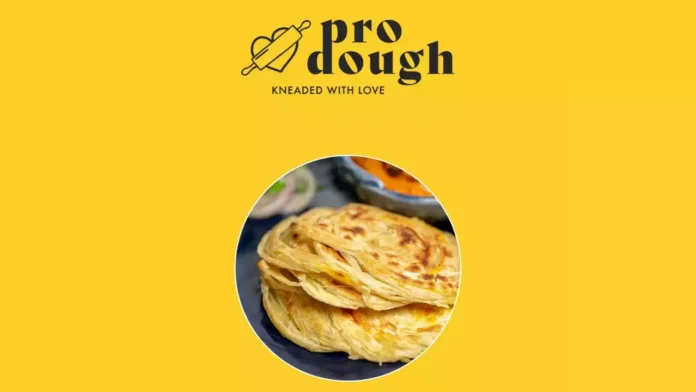Despite its ubiquity, Indian bread (rotis and paratha) often remains out of focus in the broader food industry. But a Delhi-based startup ProFoodz saw an opportunity to change this by zeroing in on a staple that is both essential and varied. Co-founded by Himanshu Mishra, the company started with a vision to revolutionize Indian breads for home cooks. However, what began as a B2C venture has dramatically evolved into a thriving B2B powerhouse.
Identifying a market
ProFoodz’s journey began with a deep dive into the intricacies of the Indian food market. Despite the surge in food delivery services, 90% of food consumed in India is still homemade, he shared.
The company’s approach was to identify what consumers find difficult to prepare at home but would prefer not to order due to quality issues. The answer was clear: rotis.
In addition, the variety and freshness required for Indian breads are hard to replicate with home delivery. ProFoodz decided to step in where others hadn’t. “Nobody’s doing a gluten-free roti or a millet-based roti that you can quickly turn around at home,” Himanshu points out. Recognizing the daily need and the depth of the category, ProFoodz saw a huge opportunity to innovate.
Continue Exploring: How lactose intolerancy made a successful business for OatMlk; now this brand sells 70,000 bottles a month
Initial Focus: B2C Market
ProFoodz with a direct-to-consumer (B2C) approach identified a significant opportunity within Indian households, where making traditional breads was a daily but labor-intensive task. They aimed to offer high-quality, ready-to-eat Indian breads that retained the freshness and authenticity of homemade versions.
“We spent almost nine months selling face-to-face to consumers through local farmers’ markets, setting up stalls at malls, and through our own D2C website,” says Himanshu.
This hands-on approach provided invaluable insights, for example the primary audience is women desiring convenience without sacrificing quality. However, they soon realized the need for larger-scale operations and turned to B2B.
Strategic Pivot: Entering the B2B sector
Despite their success in the B2C market, ProFoodz recognized a larger, untapped opportunity in the B2B sector. The company pivoted to focus on supplying their products to food service institutions, including hotels and catering companies. Today, they offer a comprehensive range of breads, from frozen to fresh, including regional and tandoori varieties.
“It was a smart decision, necessary for our survival and growth. We discovered that the B2B market faced a similar challenge: many large foods service institutions in India preferred to outsource Indian breads,” he said. This shift allowed ProFoodz to scale their operations while maintaining high product standards.
Continue Exploring: How CaterNinja Cooked Up a 10X Success Recipe! Here are the Secrets
One of their first major breakthroughs came with Compass Group, a global leader in institutional catering which 30 varieties of Indian breads from ProFoodz.
“Our products have been well-received by chefs. Our proprietary techniques ensure breads retain their quality and taste. By following the process, our clients can serve bread that meets high standards of freshness and flavor,” he said.
Expanding B2B partnerships
Following the success with Compass Group, ProFoodz’s reputation soared within the hospitality industry. They secured contracts with prestigious hotels like Holiday Inn Express and Radisson.
There have been several instances where we were chosen over much more established manufacturers. These moments have been among the most gratifying for us.ProFoodz’s B2B expansion did not stop at hotels. They partnered with Zomato, to feature their breads in Zomato’s instant delivery service and the Zomato Legends project.
Currently, ProFoodz is producing approximately 1.5 lakh Indian breads per month, with their first manufacturing facility operating at full capacity.
The Benefits of the B2B Model
After shifting to B2B model, ProFoodz is witnessing greater production volumes, driving down costs and improving margins. Focusing on the B2B market helped ProFoodz partnering with big clients, ensuring demand, streamline their operations, enhancing efficiency and product consistency.
“The shift has led to customers finding us through referrals, resulting in minimal need for business development efforts on our part. We receive inquiries from most prestigious names in the country,” he said.
The Road Ahead
With their first manufacturing facility running at full capacity, ProFoodz is now seeking growth capital to support further expansion. “The next logical step is to secure growth capital. We are currently focused on identifying potential partners who are interested in working with us to create and expand this industry,” he revealed.
Their future plans include scaling their B2B operations and exploring new market opportunities. ProFoodz aims to continue innovating, ensuring their products meet the evolving needs of their clients.



